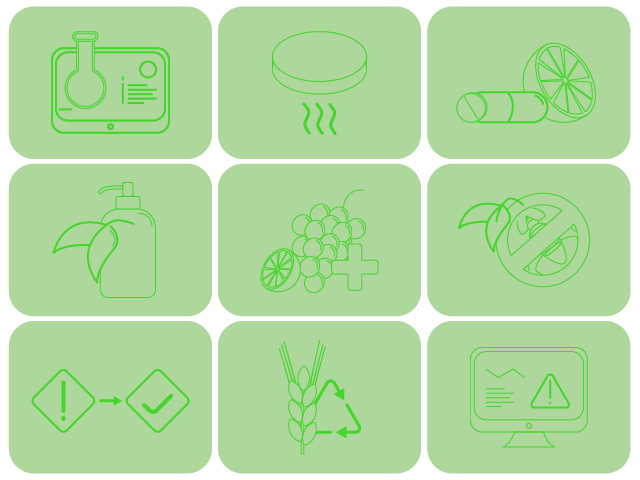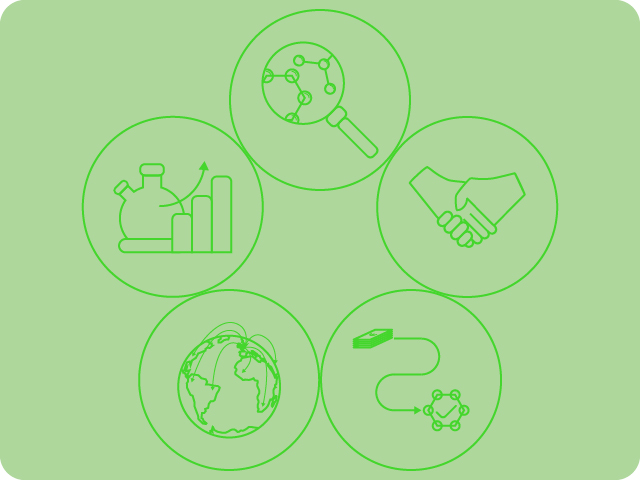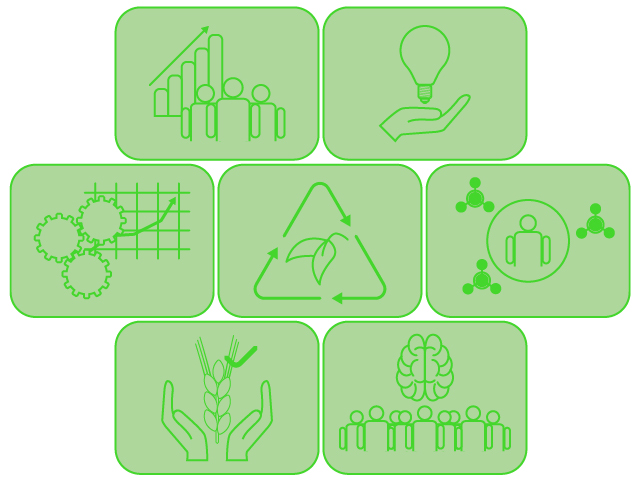Analytical Research Center
The activities of the Analytical Research Center are concentrated around two main research directions: QUALITY OF LIFE AND SOCIETY WELL-BEING and GREEN, CIRCULAR ECONOMY, encompassing a range of product technologies and services that have a direct impact on the quality of life and broadly defined sustainable well-being of society. The research themes of the Center cover the ongoing development of analytical methods and measurement techniques and provide analytical support for the R&D work carried out by the Technologies and Circular Economy Center.

The main research areas of the Analytical Research Center:
- chemical analytics,
- physico-chemical and materials testing,
- dietary supplements and health food,
- innovative bio-components, hygiene and cosmetic products,
- nutraceuticals, cosmeceuticals and pharmaceutical components,
- biocides of natural origin and biostimulants for plant growth,
- substitution of harmful substances used in the manufacture of everyday products,
- management of waste from the agri-food sector,
- development of food quality control methods, monitoring of environmental contaminants and substances harmful to public health.
Tasks of the Analytical Research Center:
- Undertaking scientific and research activities.
- Developing cooperation with industrial partners.
- Initiating and supervising activities for acquiring funding for R&D projects and managing their implementation.
- Identifying potential and carrying out activities for the internationalisation of scientific achievements.
- Participating in the development of investment plans and projects for research infrastructure.


The objectives of the Analytical Research Center:
- to give a developmental impulse to the economy with a positive impact on enhancing the quality of life and well-being of society;
- to support the development of capacities to create and use solutions based on research results in industries directly linked to the well-being of society;
- development of analytics and technologies to support a circular economy;
- increasing the use of natural resources, including agri-food industry waste;
- eliminating the use of aggressive agents and chemicals from the human environment;
- ensuring that the public has access to healthy and good-quality food;
- improving public awareness and preventing civilisation diseases.

 Polski
Polski












